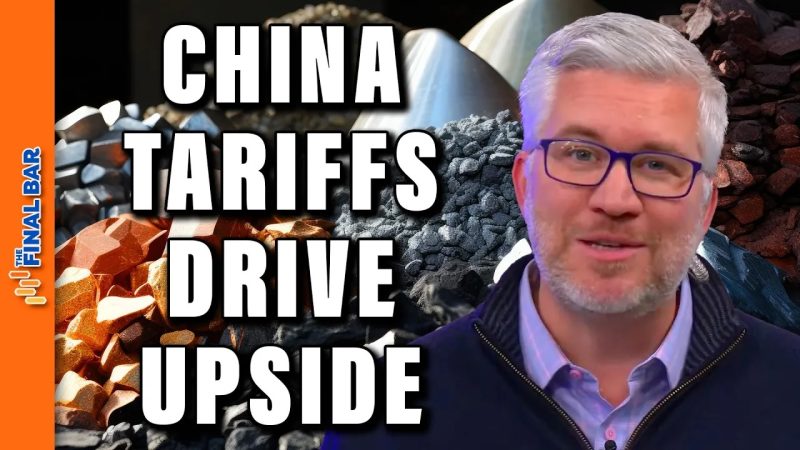The recent trade tensions between the United States and China have spurred concerns within the rare earth minerals industry. Rare earth minerals are essential components in a variety of high-tech products ranging from smartphones to electric vehicles. As China remains the dominant player in the global rare earth market, tariffs imposed by either country can have significant implications for the industry.
China is known for its substantial reserves of rare earth minerals, accounting for a vast majority of global production. In response to the tariffs imposed by the United States, China exhibited its leverage by hinting at restricting the supply of rare earth minerals to the U.S. This move underscores China’s strategic advantage in the market, as it can influence global prices and supply chains by manipulating its rare earth exports.
The escalating trade tensions and the threat of restricted rare earth mineral supply from China have sparked concerns among Western countries, particularly the United States. Recognizing the critical role of rare earth minerals in technological advancements, countries are exploring alternative sources and domestic production to reduce reliance on China. This shift in strategy could pave the way for diversification in the rare earth supply chain and reduce vulnerabilities associated with a single dominant supplier.
While the trade tensions may pose challenges for the rare earth industry in the short term, they also present an opportunity for other countries to emerge as key players in the market. Countries rich in rare earth mineral reserves, such as Australia and the United States, are looking to capitalize on the situation by ramping up their production and exploration efforts. This could potentially lead to a more balanced global rare earth supply chain and reduce the dependence on China.
The increased focus on rare earth minerals due to the trade tensions also underscores the importance of sustainable mining practices. Extracting rare earth minerals can be harmful to the environment if not done responsibly. Countries investing in rare earth production must prioritize environmental protection and implement stringent regulations to mitigate the adverse impacts of mining activities.
In conclusion, the trade tensions between the United States and China have brought the rare earth minerals industry into the spotlight. While the uncertainties surrounding the market pose challenges, they also offer opportunities for diversification and sustainability. By exploring alternative sources, promoting domestic production, and emphasizing responsible mining practices, countries can navigate through the trade tensions and secure a more resilient rare earth supply chain for the future.




























